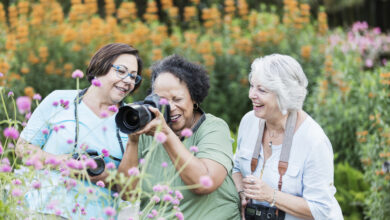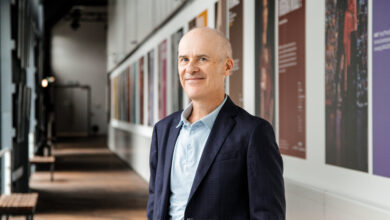Homelessness and climate change top concerns among older people

Over fifty per cent of older Australians consider climate change and homelessness to be significant issues, a new survey has found.
Peak aged care body COTA asked over 6,000 older Australians living in NSW about their attitudes and feelings on a range of current issues.
Action towards climate change and rising costs of living were found to be over half of the respondent's major concerns.
Given the recent devastating floods in NSW that took the lives of 22 people, COTA chief executive officer Meagan Lawson said she was not surprised by the findings.
"Older people are often disproportionally affected by extreme weather conditions, such as heatwaves and floods," Lawson said.
"If you look at the number of people who died in Lismore, they were predominantly older people."
In the survey, older people voiced a need for more action on climate change, particularly around adaptation and resilience, to ensure they can survive the effects of extreme weather conditions in the future.
Older people were also conscious about what they'd leave behind for their children and grandchildren
"They also expressed real concerns about younger people getting into the housing market and managing climate change," Lawson said.
"Older people noticed opportunities they'd had in the past, such as HECS, which had not been granted to their children and grandchildren.
"While housing issues for the younger generation were expressed, female respondents also referred to older women struggling with homelessness."
Since 2016, the rate of older women experiencing homelessness in Australia has increased by 31 per cent.
Currently, one in six homeless people across the country are aged over 55.
This will likely be exacerbated by soaring inflation, with property prices in regional NSW rising by 20 per cent this year.
"They are often seen as being the holders of all of the world, but in fact, many older people find housing difficult," Lawson said.
"Particularly for older women, who are now the largest growing cohort of homeless people."
Over 60 per cent of survey respondents also said they could not match the speed with which technology was evolving.
"We all have access to an arrange of technology through work and that access is more restrained once you leave work," Lawson said.
"For others, purchasing technology is hard because they are on fixed incomes and don't have much spare cash to do that."
Over recent years, the introduction of QR codes during COVID-19 has also posed a problem for many older people who do not own smartphones.
Although research has found that seven out of ten older Australians currently own a mobile phone, digital literacy often falls below an advanced level.
Nevertheless, the survey showed that fifty per cent of older people were willing to adapt to changing technologies to remain informed.
Lawson said that older people are often viewed as a homogenous group rather than individuals, leading to a biased impression of them in society.
"The point of the report was to say, 'don't think all older people think the same thing because they're diverse people just like the rest of the community,' she said.
Email: [email protected]





